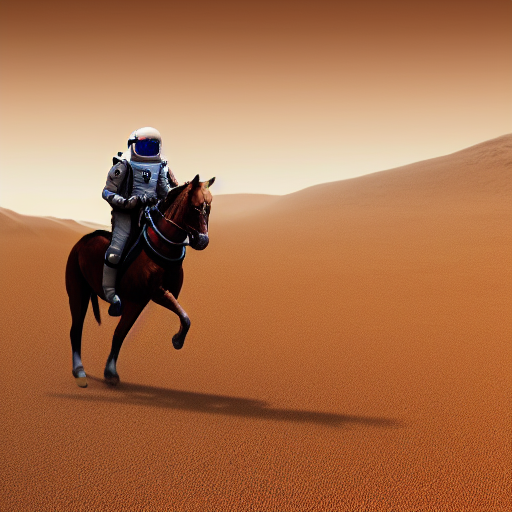Load schedulers and models
Diffusion pipelines are a collection of interchangeable schedulers and models that can be mixed and matched to tailor a pipeline to a specific use case. The scheduler encapsulates the entire denoising process such as the number of denoising steps and the algorithm for finding the denoised sample. A scheduler is not parameterized or trained so they don’t take very much memory. The model is usually only concerned with the forward pass of going from a noisy input to a less noisy sample.
This guide will show you how to load schedulers and models to customize a pipeline. You’ll use the runwayml/stable-diffusion-v1-5 checkpoint throughout this guide, so let’s load it first.
import torch
from diffusers import DiffusionPipeline
pipeline = DiffusionPipeline.from_pretrained(
"runwayml/stable-diffusion-v1-5", torch_dtype=torch.float16, use_safetensors=True
).to("cuda")You can see what scheduler this pipeline uses with the pipeline.scheduler attribute.
pipeline.scheduler
PNDMScheduler {
"_class_name": "PNDMScheduler",
"_diffusers_version": "0.21.4",
"beta_end": 0.012,
"beta_schedule": "scaled_linear",
"beta_start": 0.00085,
"clip_sample": false,
"num_train_timesteps": 1000,
"set_alpha_to_one": false,
"skip_prk_steps": true,
"steps_offset": 1,
"timestep_spacing": "leading",
"trained_betas": null
}Load a scheduler
Schedulers are defined by a configuration file that can be used by a variety of schedulers. Load a scheduler with the SchedulerMixin.from_pretrained() method, and specify the subfolder parameter to load the configuration file into the correct subfolder of the pipeline repository.
For example, to load the DDIMScheduler:
from diffusers import DDIMScheduler, DiffusionPipeline
ddim = DDIMScheduler.from_pretrained("runwayml/stable-diffusion-v1-5", subfolder="scheduler")Then you can pass the newly loaded scheduler to the pipeline.
pipeline = DiffusionPipeline.from_pretrained(
"runwayml/stable-diffusion-v1-5", scheduler=ddim, torch_dtype=torch.float16, use_safetensors=True
).to("cuda")Compare schedulers
Schedulers have their own unique strengths and weaknesses, making it difficult to quantitatively compare which scheduler works best for a pipeline. You typically have to make a trade-off between denoising speed and denoising quality. We recommend trying out different schedulers to find one that works best for your use case. Call the pipeline.scheduler.compatibles attribute to see what schedulers are compatible with a pipeline.
Let’s compare the LMSDiscreteScheduler, EulerDiscreteScheduler, EulerAncestralDiscreteScheduler, and the DPMSolverMultistepScheduler on the following prompt and seed.
import torch
from diffusers import DiffusionPipeline
pipeline = DiffusionPipeline.from_pretrained(
"runwayml/stable-diffusion-v1-5", torch_dtype=torch.float16, use_safetensors=True
).to("cuda")
prompt = "A photograph of an astronaut riding a horse on Mars, high resolution, high definition."
generator = torch.Generator(device="cuda").manual_seed(8)To change the pipelines scheduler, use the from_config() method to load a different scheduler’s pipeline.scheduler.config into the pipeline.
LMSDiscreteScheduler typically generates higher quality images than the default scheduler.
from diffusers import LMSDiscreteScheduler
pipeline.scheduler = LMSDiscreteScheduler.from_config(pipeline.scheduler.config)
image = pipeline(prompt, generator=generator).images[0]
image



Most images look very similar and are comparable in quality. Again, it often comes down to your specific use case so a good approach is to run multiple different schedulers and compare the results.
Flax schedulers
To compare Flax schedulers, you need to additionally load the scheduler state into the model parameters. For example, let’s change the default scheduler in FlaxStableDiffusionPipeline to use the super fast FlaxDPMSolverMultistepScheduler.
The FlaxLMSDiscreteScheduler and FlaxDDPMScheduler are not compatible with the FlaxStableDiffusionPipeline yet.
import jax
import numpy as np
from flax.jax_utils import replicate
from flax.training.common_utils import shard
from diffusers import FlaxStableDiffusionPipeline, FlaxDPMSolverMultistepScheduler
scheduler, scheduler_state = FlaxDPMSolverMultistepScheduler.from_pretrained(
"runwayml/stable-diffusion-v1-5",
subfolder="scheduler"
)
pipeline, params = FlaxStableDiffusionPipeline.from_pretrained(
"runwayml/stable-diffusion-v1-5",
scheduler=scheduler,
revision="bf16",
dtype=jax.numpy.bfloat16,
)
params["scheduler"] = scheduler_stateThen you can take advantage of Flax’s compatibility with TPUs to generate a number of images in parallel. You’ll need to make a copy of the model parameters for each available device and then split the inputs across them to generate your desired number of images.
# Generate 1 image per parallel device (8 on TPUv2-8 or TPUv3-8)
prompt = "A photograph of an astronaut riding a horse on Mars, high resolution, high definition."
num_samples = jax.device_count()
prompt_ids = pipeline.prepare_inputs([prompt] * num_samples)
prng_seed = jax.random.PRNGKey(0)
num_inference_steps = 25
# shard inputs and rng
params = replicate(params)
prng_seed = jax.random.split(prng_seed, jax.device_count())
prompt_ids = shard(prompt_ids)
images = pipeline(prompt_ids, params, prng_seed, num_inference_steps, jit=True).images
images = pipeline.numpy_to_pil(np.asarray(images.reshape((num_samples,) + images.shape[-3:])))Models
Models are loaded from the ModelMixin.from_pretrained() method, which downloads and caches the latest version of the model weights and configurations. If the latest files are available in the local cache, from_pretrained() reuses files in the cache instead of re-downloading them.
Models can be loaded from a subfolder with the subfolder argument. For example, the model weights for runwayml/stable-diffusion-v1-5 are stored in the unet subfolder.
from diffusers import UNet2DConditionModel
unet = UNet2DConditionModel.from_pretrained("runwayml/stable-diffusion-v1-5", subfolder="unet", use_safetensors=True)They can also be directly loaded from a repository.
from diffusers import UNet2DModel
unet = UNet2DModel.from_pretrained("google/ddpm-cifar10-32", use_safetensors=True)To load and save model variants, specify the variant argument in ModelMixin.from_pretrained() and ModelMixin.save_pretrained().
from diffusers import UNet2DConditionModel
unet = UNet2DConditionModel.from_pretrained(
"runwayml/stable-diffusion-v1-5", subfolder="unet", variant="non_ema", use_safetensors=True
)
unet.save_pretrained("./local-unet", variant="non_ema")